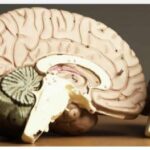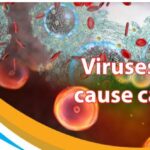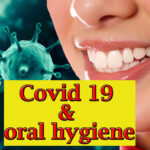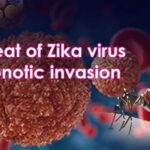Covid-19 infection and mucosal immunity. The intranasal immunization against Covid-19 will produce mainly immunoglobulin A antibody that does not have inflammatory side-effects.
Covid-19 viral infection caused by betacoronavirus SARS-CoV-2 is the most virulent disease humankind has seen in living memory. As such, the coronaviruses are studded with spike proteins on its surface and thus the virus looks to having a crown. The coronaviruses infect and cause disease in both humans and animals. There are four classes of coronaviruses: alpha, beta, gamma and delta. Any virus has a simple structure: a protein coat with either DNA or RNA genetic material inside (not both).
Consequently, viruses are classified as DNA viruses and RNA viruses. Adenoviruses are DNA viruses that are commonly found in the human respiratory system. They may cause common cold and sore throat, however, the antibodies and the body’s immune system takes care of these viruses and keeps them at low levels, so they don’t cause infection. An infection is said to take place when there is invasion, multiplication and destruction of local tissue by the pathogenic or disease causing microbe.
The SARS-CoV-2 virus is a RNA virus and positive stranded. This means the RNA is used directly by the ribosome (protein factory) of host cell and proteins are manufactured. SARS-CoV-2 RNA virus has not only caused loss in quality of life, and death; the Covid-19 pandemic disease has additionally resulted in an economic contagion of huge proportions. Hence, scientists are constantly studying this RNA (ribonucleic acid) corona virus called SARS-CoV-2, and Covid-19 disease aspects, to unravel its several dimensions – so as to ultimately conquer this scourge.
As noted earlier, the surface of the SARS-CoV-2 or ‘severe acute respiratory syndrome coronavirus-2’ is studded with spike proteins. Each spike protein has two sub units. One sub unit helps to dock onto the ACE2 receptor that is located on the outer surface of the host cell membrane. The other sub unit helps stabilize and inject viral RNA into the host cell. The viral RNA from SARS-CoV-2 then controls the host cell machinery including ribosomal protein manufacturing activity to make umpteen copies of the virus. So the host cell becomes the ‘factory for replication’ of the SARS-CoV-2 virus.
The main requirement is the host cell has to have the ACE2 receptor, and the outer lining of entire nasal tract, other parts of the respiratory system, oral cavity and throat region has cells with ACE2 receptors. The SARS-CoV-2 virus seems to have only two objectives: replication and mutation. The virus mutates in order to survive in host bodies despite the presence of antibodies that the host uses to destroy the virus. The SARS-CoV-2 RNA virus mutation is by changing its RNA sequence, so that is not attacked by the antibodies, this give the virus more time since the host immune mechanism should learn to provide a new set of antibodies to counter the variant. By then, the virus mutates and produces one more variant.Hence it is observed that the human body generates about 10 billion different antibodies that attack various antigens to which the body is exposed to.
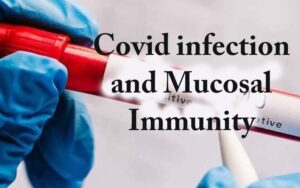

Antibody proteins called: immunoglobulin G in the blood and secretory immunoglobulin A in the nasal mucosa
Antigen means foreign body including microbes, parts of microbes and other toxins. Antibody is a protein produced by B lymphocytes, a type of white blood cell, and each antibody helps neutralize and destroy specific antigens, hence, there are upto 10 billion different antibodies in humans. The antibodies are produced and put into the general blood circulation and also in specific areas like mucosa. The mucosa is a lining that covers surfaces of internal organs and various body cavities or empty spaces. The immune or self-defense system of the mucosa is the largest part of a body’s immune system.
The mucosal cells produce an antibody called immunoglobulin A (IgA). The antibodies transported to the mucosal surface such as nasal passages are called secretory immunoglobulin A (SIgA). They have a protective role to play and may contribute to self-defense against SARS-CoV-2, the Covid-19 virus. The current injectable Covid-19 vaccines are directed towards development of circulating antibodies in the blood, which are immunoglobulin G. These circulating antibodies of the body, may not reach the nasal mucosa, where there is dominance of another antibody: secretory immunoglobulin A, which is not usually produced in large numbers by injectable Covid-19 vaccines.
So the next level vaccine development is about generating immunoglobulin antibodies in the mucosa. The production of suitable antibodies through nasal Covid-19 vaccines, with action against the Covid-19 viruses in the nasal tract and respiratory mucosa presents another opportunity to strengthen the fight against SARS-CoV-2. The intranasal immunization against Covid-19 will produce mainly immunoglobulin A antibody that does not have inflammatory side-effects.
The mucosa covers not only the nasal tract and respiratory system, but also urinary system, genital system, and digestive system. The mucosal immune system in all these areas protects against the colonization and invasion of disease causing microbes, and prevents uptake of foreign agents, and also avoids the development of harmful effects of foreign agents inside the body. The body’s general immune system tries to maintain near sterile, zero-microbe environments in the body. However, the mucosal immune system mounts a self-defense system where foreign matter is always there in plenty (such as nose, throat and intestines).
This is why, perhaps, jalneti and to some extent a limited amount of steam inhalation helps reduce the foreign matter and disease causing load on the nasal mucosa and thus avoids microbial infection including Covid-19. The fact of matter is that Covid-19 causing virus SARS-CoV-2 first infects mucosal surfaces of the respiratory system, and to some extent the mucosa of the digestive system including intestines, and when the infection becomes severe, the Covid-19 virus SARS-CoV-2 starts to attack the other organs of the body including blood where there is blood clotting.
Mucosal immune function
The Covid-19 epidemic has brought into focus the mucosal immune function in the nose, throat, mouth, all other parts of the respiratory system and the digestive tract. Research efforts are currently on to produce Covid-19 vaccines that shall do two things: strengthen the mucosal immune function and the general blood associated immune function.


Sunil S Chiplunkar M Pharm (Pharmacology) MBA (Marketing) PGDHRM (PhD)
VP – Business Development, Group Pharmaceuticals, Bangalore
E mail: 1969sunilchiplunkar@gmail.com
Mob: 6364578669



